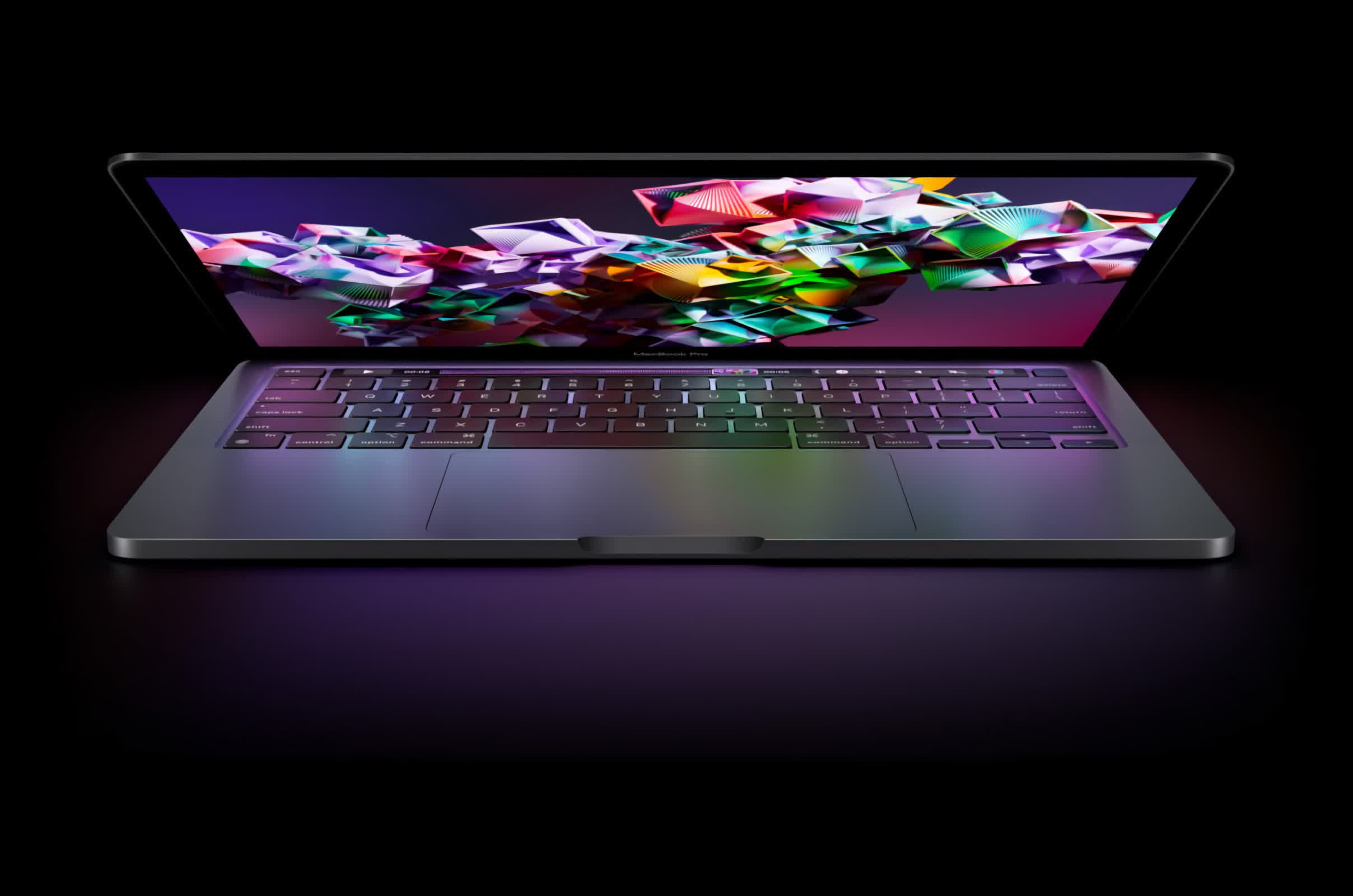
Here are the full Disk Speed Test results gathered by Vadim Yuryev at Max Tech.
- 13-inch MacBook Pro (M1/256GB) Read Speed: 2,900 MB/s
- 13-inch MacBook Pro (M2/256GB) Read Speed: 1,446 MB/s
- 13-inch MacBook Pro (M1/256GB) Write Speed: 2,215 MB/s
- 13-inch MacBook Pro (M2/256GB) Write Speed: 1,463 MB/s
When I first saw these numbers, my instinct was to blame the testing software—benchmark errors aren’t so uncommon. But that’s not what is happening here. Apple is indeed skimping out and we have proof. Yuryev disassembled the new Pro 13 and found that the 256GB model has only one NAND flash storage chip whereas the previous model had dual 128GB chips. This is an important difference, because multiple NAND chips running in parallel can enable faster speeds.
Advertisement
Apple conveniently sent us, and most other reviewers, a 1TB unit so we haven’t had a chance to verify these results. We’ll do further testing when we get our hands on a base model and will update this article with additional findings. More expensive models with 512GB and up achieve similar speeds to the previous versions—only those trying to save a buck by buying the $1,299 base edition are stuck with slower storage speeds.
We don’t know why Apple chose to equip the base MacBook Pro 13 with only one NAND chip, but lowering costs (and keeping margins high) in a way that isn’t visible to customers is one theory. Supply chain issues that continue to impact the entire industry is another one. We’ve reached out to Apple for comment and will update this article as soon as possible.
G/O Media may get a commission
Advertisement
Whatever the case, Apple hasn’t been transparent about the reduced SSD speeds, which could significantly impact performance when running certain workloads, like when transferring files to an external drive. We can only hope the company didn’t cut any corners with the new MacBook Air, the laptop we think most people should buy over the Pro 13 anyway.
